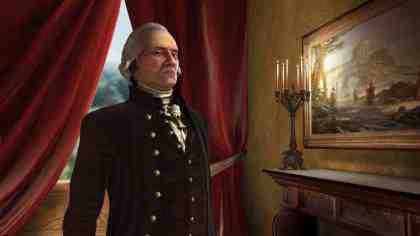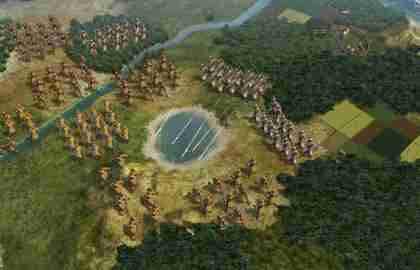Civilization V roughly follows the same plot of the games before it. In it you take control of a nation (England, America, Rome and so on) controlled by a famous historical figure (Queen Elizabeth I, George Washington, etc.) and guide it from prehistory to the future. Along the way, it's your job to control interactions with other nations as you attempt to win the game.
While the plot and mechanics haven't changed that much, Civ V still manages to feel fresh and different. In part, it's because the game, as with its predecessors, uses a turn-based game engine, rather than the real-time free-for-all employed by other games. However, the main reason that it still feels different is because there are several ways to win the game.

There's the old-fashioned way of raising a massive army and capturing every other nation's capital city, which is certainly fun, but it's the other ways to win that make the game: you can be the first nation to launch a spaceship; you can create the United Nations and have peace; or you can create the Utopia project by implementing a set number of social policies.
Regardless of which method you go for, part of the fun of Civilization is that you get to interact with the other nations sharing the same map, discussing matters with the famous head of state. This can be for good, such as developing technology together, or for bad, by demanding a payment of gold from them or getting them to let your troops through their territory.
How you play the game affects how your neighbours view you, and complex diplomacy means that attacking a weak nation isn't always the best plan, as you can provoke a larger nation into starting a war with you.

As with previous games, Civlization V is a turn-based strategy game. This means that in each turn, your units can only perform a set number of actions, such as moving a specified distance. The clever part of the system is that it's a simultaneous turn-based game, so everyone gets a chance to make their moves at the same time with the first action made carried out first. This means that at certain points, moving key units first gives you a tactical advantage, so it can be important to be quick.
Some updates to the game are that the map is now split into hexagonal tiles, rather than square ones. In practice this has very little impact on the game. A bigger factor is now that two units can't occupy the same tile. This makes a huge impact on warfare, as you have to employ better tactical planning in order to attack a city, rather than relying on overwhelming force with a tile stacked to the hilt with tanks.






Leave a Reply